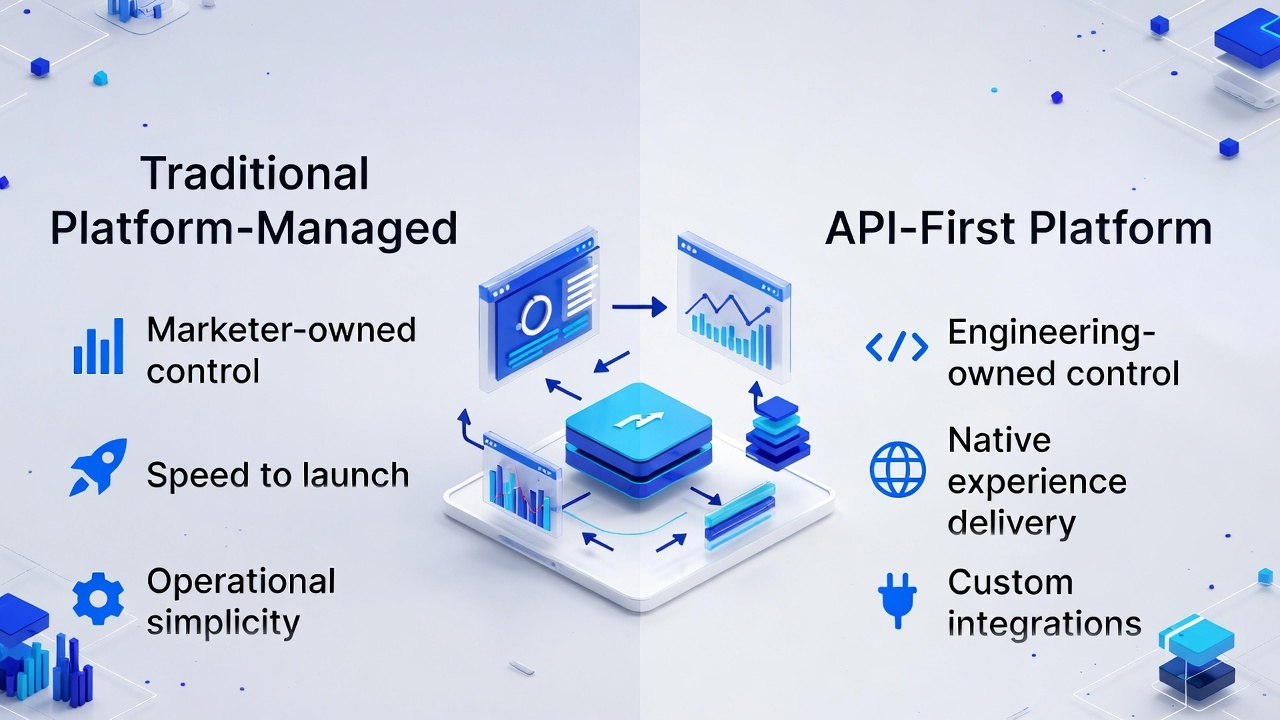Finding innovative and cost-effective ways to acquire and retain customers is a perpetual challenge for Direct-to-Consumer (D2C) brands. One highly effective marketing strategy that has gained momentum in recent years is the implementation of a customer referral program. Referral programs not only drive customer acquisition but also foster brand loyalty and advocacy.
In this blog post, we'll review the key metrics that should be tracked to monitor referral program success, explore the many benefits of a customer referral program for D2C brands, and discuss how to implement your own referral program for your business.
Let's begin with an overview of what a customer referral program is and how brands can get their existing customer base to refer friends to their business.
What Is A Customer Referral Program?
A customer referral program, often referred to as a refer-a-friend program, is a structured marketing initiative where a brand encourages its current customers to refer new customers to the business. This referral can take various forms, such as sharing unique referral links, discount codes, or even friend-invite features within a mobile app or website. In return for their efforts, referrers are typically rewarded with incentives like discounts, cash rewards, or exclusive offers.
Referral programs use the power of word-of-mouth marketing, capitalizing on the trust and social connections between the referred friends and existing customers. Customers tend to trust personal recommendations from friends and family more than traditional advertising, making referral programs a potent tool for brand growth.
To see this in action, take a look at these successful referral programs examples.
Key Metrics To Track In A Customer Referral Program
Before we dive into the benefits, let's understand the key referral program metrics that should be tracked in a customer referral program. These metrics not only measure the positive impact on your business but also to find opportunities to improve your referral program.
- Referral Conversion Rate: This is the percentage of referred customers who make a purchase. This metric tells you how effective your referral program is at turning leads into paying customers.
- Referral Traffic: This is the amount of web traffic generated through referral links. Monitoring referral traffic helps you understand the impact of the program on your website or app's user engagement.
- Customer Lifetime Value (CLV): This is the predicted net profit a customer will generate throughout their entire relationship with your brand. It helps in assessing the long-term value of referred customers compared to other acquisition channels.
- Referral Source: Identifying where the most referrals are coming from (e.g., social media, email, in-app referrals). Allows you to focus your efforts on the most productive referral channels.
- Referral Share Rate: This is the number of successful referrals made by each referrer. High share rates indicate brand advocates and potential brand ambassadors.
- Reward Redemption Rate: This is the percentage of referrers who claim their referral rewards. Helps in assessing the attractiveness of your reward system and the overall effectiveness of your referral marketing program.
These metrics offer valuable insights into the referral program's performance and help optimize it for better results.
6 Benefits Of Referral Programs
The many benefits of a referral program are backed by referral marketing statistics. Here is a summary of the most notable benefits of referral marketing for D2C brands.
1. Cost-Effective Customer Acquisition
Customer referral programs are a cost-effective way to acquire new customers. Instead of spending significant amounts on traditional advertising, brands can tap into their loyal customers to reach potential buyers. This not only reduces customer acquisition costs but also ensures that the new customers acquired through referrals are more likely to be a good fit for the brand.
So how effective are referral marketing programs at keeping customer acquisition costs low? Brands that have worked with Friendbuy have seen a 25x return on spend and 3-4x higher customer lifetime value (LTV).
Byte, for instance, was able to achieve a 50% conversion rate with its referral program, which is significantly higher than any other marketing channels.

Natural Dog Company had a 11 percent higher average order value (AOV) for referred friends in its referral program compared to sitewide AOV.

Referred friends convert more easily and spend more, making them the most cost-effective audience for D2C brands.
2. Trust and Credibility
Those impressive numbers above are all due to the fact that referral programs are built on trust. When a friend or family member recommends a product or service, the recipient is more likely to trust that recommendation. McKinsey says that high-impact recommendations, such as those from trusted friends, are up to 50 times more effective in triggering purchases than low-impact ones. This trust can be a powerful motivator for new customers to try out a D2C brand.
3. Improved Customer Loyalty
Referral programs don't just benefit new customers, they also enhance the experience of existing ones, which often leads to customer loyalty. Customers who actively participate in referring friends and family tend to be more engaged with the brand and are likely to become long-term brand advocates.
Here are a few ways a good referral program can improve customer loyalty and your profits:
- Referred customers have a 37% higher retention rate than non-referred customers.
- Customers that have a positive experience are more likely to make repeat purchases.
- Just a 5% increase in customer retention rate increases a business's profitability by 75%, on average.
4. Data Insights
In addition to increasing revenue, referral programs also provide valuable data about customer behavior, preferences, and the effectiveness of your various marketing efforts and channels. This data can be used to refine your marketing strategies, improve product offerings, and enhance the overall customer experience.
Here are a few ways referral programs can inform your future marketing efforts:
- Customer Loyalty Insights: Referral patterns help identify your best customers and what drives their satisfaction. This information is key to improving customer retention strategies. This can also help you target more potential customers just like them.
- Marketing Channel Effectiveness: By analyzing which channels generate the most referrals, you can allocate your marketing budget more effectively, focusing on the most productive areas.
- Product Development Guidance: Understanding which features or services are frequently referred provides direct insight into what your customers value most, guiding your product development priorities.
- Enhanced Customer Segmentation: The demographic and behavioral data of customers who engage in referrals allows for more targeted and personalized marketing campaigns.
5. Sustainable Growth
Word-of-mouth marketing is already the primary factor behind 20% to 50% of all purchasing decisions. As your customer base grows, so does your pool of potential referrers. This snowball effect of customer referrals can lead to exponential growth without incurring the skyrocketing costs associated with traditional marketing campaigns.
Flaviar, for example, was able to achieve 256% referral revenue growth year-over-year using Friendbuy's referral program software. Within just five months of launching, 9.2% of Flaviar’s total new subscription revenue came from the referral program. So how did Flaviar incentivize customers? With a free bottle of whiskey for both referrers and referred friends.

6. Competitive Advantage
A well-executed referral program can be a significant differentiator in a competitive D2C landscape. It sets your brand apart and offers a unique value proposition that can attract and retain customers.
Metromile, a car insurance company, allowed customers to earn $25 per referred Friend up to $100 each year. In a competitive market such as car insurance, providing a hefty reward made Metromile stand out against its competition.

Tips For Implementing A Successful Customer Referral Program
While referral marketing is the easiest and most cost-effective way to acquire more customers, it does take thoughtful consideration when setting up and promoting. To make the most of your customer referral rewards program, consider the following tips.
- Use A Sophisticated Referral Marketing Platform: Most referral marketing platforms offer a basic referral program structure and referral rewards. Look for referral program software that goes beyond the basics, that allows you to easily track referrals, A/B test various aspects of your referral funnel, and customize your earning events. See these features and more with Friendbuy's referral program software.
- Offer Attractive Incentives: The rewards for both the referrer and the referred should be enticing enough to motivate participation. This might include discounts, free products, or exclusive access.
- Simplicity is Key: Ensure that the referral process is straightforward and user-friendly. Make it easy for customers to share their unique referral links or codes.
- Personalization: Tailor your referral marketing program to the preferences and behaviors of your customer base. The more relevant the referral offers, the more likely customers are to participate.
- Promote the Program: Actively promote your referral program through various channels like email, social media, and in-app notifications.
- Track and Optimize: Continuously monitor the key metrics mentioned earlier, and use this data to refine your referral marketing program for better results.
- Test Different Incentives: Experiment with various incentives and rewards to see which ones resonate best with your audience.
In Conclusion
The benefits of a customer referral program for D2C brands are multifaceted. These programs provide cost-effective customer acquisition, build trust and credibility, enhance customer loyalty, and offer invaluable data insights. By tracking essential metrics, brands can optimize their referral programs and achieve sustainable growth in a competitive market.
In today's digital age, harnessing the power of referral marketing from your existing customers to acquire new ones is not just a marketing strategy; it's a necessity. A well-crafted and executed referral program can be the strategy that propels your D2C brand to new heights, creating a loyal customer base and a sustainable path to success.
Contact Friendbuy to see how our referral program software and loyalty program software can propel your business.








.avif)

